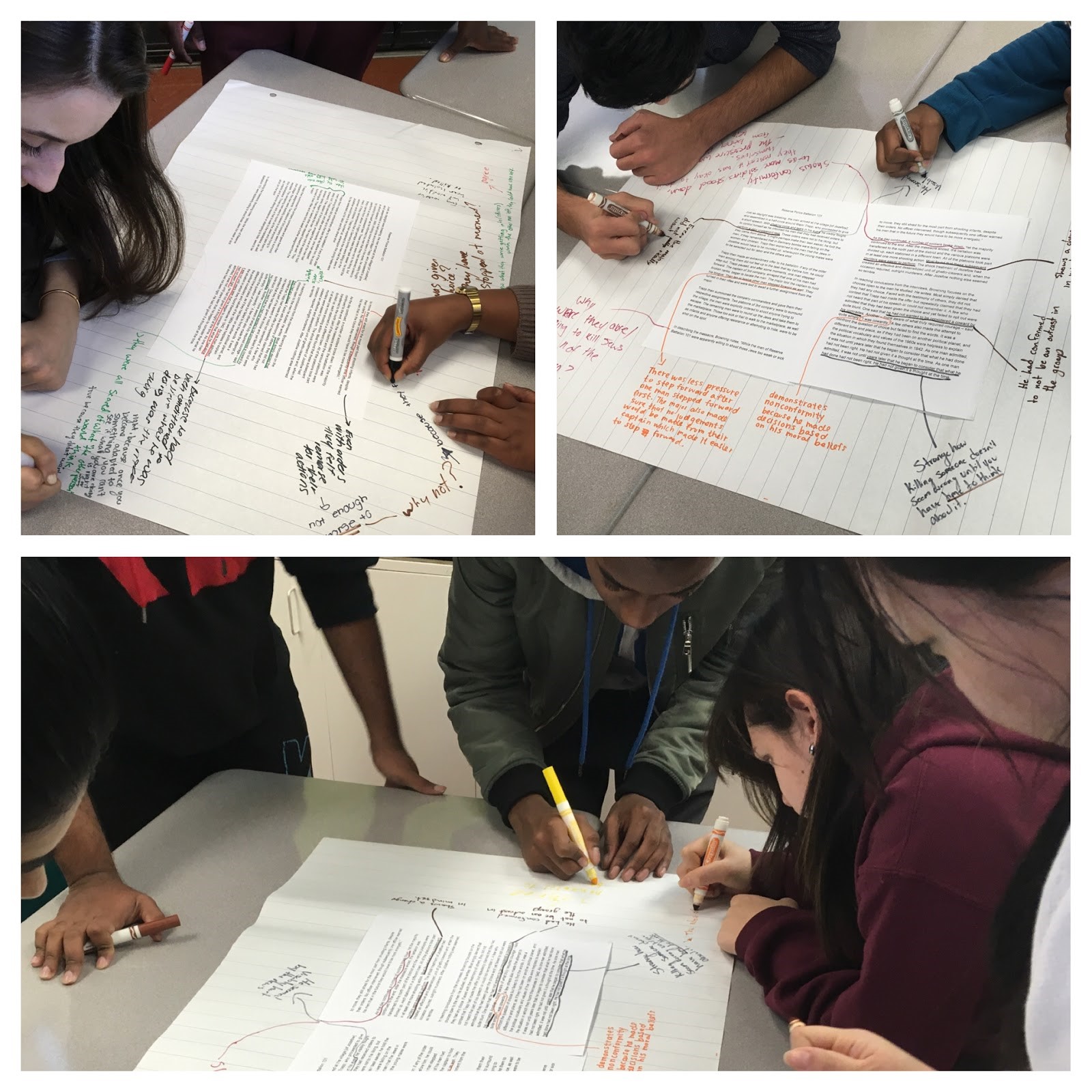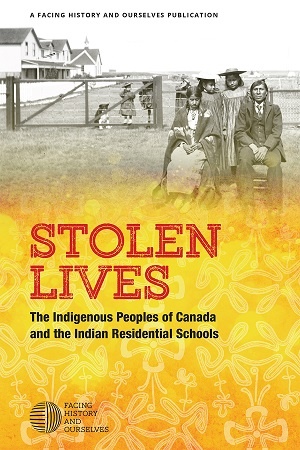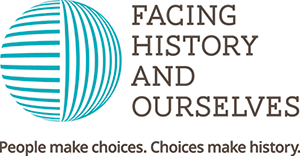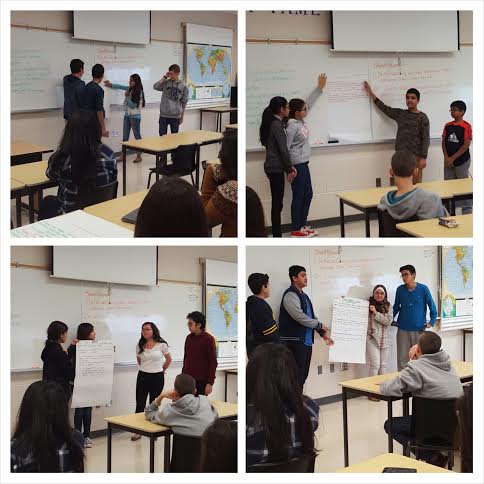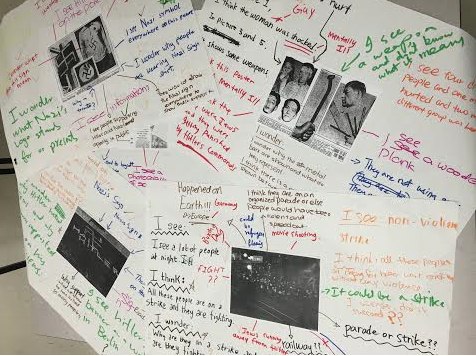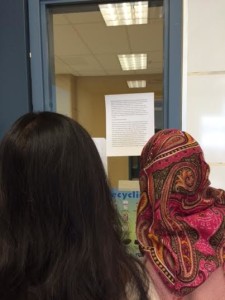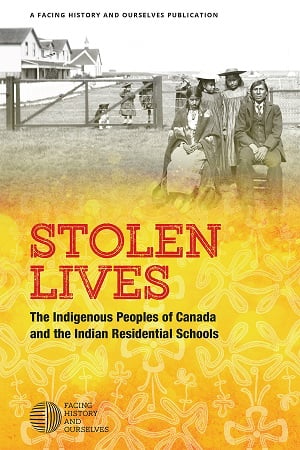Why do troubled times so often bring out hatred in humanity? In both Canada and the United States over the past few years there has been much xenophobic rhetoric spread around in light of numerous global crises. During the 2015 Canadian and 2016 American elections we saw candidates in both countries “other” identifiable or vulnerable members of society using hateful language and often using them as scapegoats for social and economic problems, all while claiming to speak for the will of those they purport to be the “silent majority”. Furthermore, we saw large groups joining the “unsilent majority” through the use of social media to spread hate, join xenophobic movements and rallies, commit hate crimes and even acts of violence. Those who criticized this movement drew many parallels between the social climate and dialogue of today to that of Nazi Germany. As educators we felt it necessary to attempt to address this recurring phenomenon.
Addressing Roots of Human Hatred: A Psychological Study on Conformity, Obedience and Behaviour
Posted by Mike Elias on January 16, 2017
Topics: Choosing to Participate, Holocaust and Human Behavior, Canada, American History, Canadian History, Bystander, current events, Upstander, big paper, CHG, HSP
Let's Play Ball: Recognizing Indigenous Territory at Blue Jays Games
Posted by Cheryl Payne on October 14, 2016
It’s playoff time! Toronto is welcoming the Cleveland Indians for the American League Championship Series, and things are stirring on social media. Why hasn’t Cleveland changed their name? For years, they’ve been using culturally insensitive names; and as Canadians, we can no longer stand by the degradation of Indigenous culture and beliefs.
Topics: News, Canada, Truth and Reconciliation, Indigenous History, Indigenous, trc
"Creating a Culture of Caring Through Reconciliation as a Non-Indigenous Teacher": An Interview with Nathan Tidridge
Posted by Alysha Groff on September 13, 2016
As part of Facing History and Ourselves three day summer seminar "CHC2 Canadian History through a Facing History Lens", Nathan Tidridge came to speak about "Creating a Culture of Caring Through Reconciliation as Non-Indigenous Teacher."
If you were unable to attend and would like to see the talk it was streamed and can be accessed on Periscope.
Following the event I had a chance to catch up with Nathan and talk to him a little bit about his experiences teaching difficult content in the highschool classroom. Whether or not you were able to attend this great talk, take a look at the following interview and consider the following:
1. How could you use the information in this interview to better your own teaching practice?
2. How might this interview help you contextualize the importance of addressing the TRC calls to action for your department and school?
3. How could the interview be used to help inspire and build confidence in educators to incorporate Indigenous Studies into their classrooms?
Hello and Goodbye from your Facing History and Ourselves Canada Program Associates
Posted by Jasmine Wong on September 8, 2016
Creating infographics to raise awareness about current Indigenous issues
Posted by Amanda Scott on May 25, 2016
This past semester, my course team for Academic Geography decided to focus on making the Grade 9 course more issues based. In turn, we made changes to how we structured the units. Additionally, we wanted to embed the Geographic Inquiry Model into our lessons as well as major assessments. Our goal was to further develop students’ critical thinking skills as they examined different issues within Canadian Geography.
Topics: Canada, Facing Technology, current events, geographic inquiry model, human geography
Helping students view Prejudice and Discrimination as a Universal Problem
Posted by Kristen Drury on May 12, 2016
Throughout my years of teaching I began to realize something that Facing History and Ourselves so adeptly addresses- that we tend to see ourselves as “us” vs. “them.” I think that’s one of the hardest issues I’ve come across in teaching WWII, as so many students see what happened as a problem solely with Germany. “They” were racist. That could never happen “here!” It’s “their” problem. But what I really wanted to address in my classroom is that the roots of anti-Semitism and racism that led to the Holocaust were not just found in Germany!
Topics: Antisemitism, Choosing to Participate, History, Canada, Canadian History, genocide, big paper
Asian Heritage Month- Exploring Canada's history of immigration through identity and civic participation.
Posted by Jse-Che Lam on May 4, 2016
May is Asian Heritage Month in Canada. The following are five resources that provide entry points that teachers can use to invite students to explore Canada’s history of immigration through identity and civic participation.
Topics: Books, Film, History, Canada, Canadian History, Culturally Responsive and Relevant Pedagogy, CHG
Q&A with Shireen Afzal: Her advice for students entering the 2016 Student Essay Contest
Posted by Alysha Groff on April 11, 2016
The following interview was originally published on Facing Today by Stacey Perlman, a Communications Writer at Facing History and Ourselves
Shireen recently gave advice to students who entered Facing History's 2016 Student Essay Contest, based on themes from To Kill A Mockingbird. This year's contest was open to all U.S. 7th-12th grade students. Finalists will be announced soon.
Topics: Choosing to Participate, Facing History and Ourselves, Canada, Best of..., Holocaust and Human Behaviour, Social Justice
Bringing Indigenous Voices into the Classroom
In December of 2012, I visited the Woodland Cultural Centre and former Mohawk Institute in Brantford, Ontario for the first time. This visit had a lasting impact upon my understanding of the residential school system in Canada. Subsequently I asked myself, how could I further embed Indigenous history into my courses?
Topics: Choosing to Participate, Facing History Resources, History, Canada, Media Skills, Technology, Truth and Reconciliation, current events, Culturally Responsive and Relevant Pedagogy, Indigenous, Lesson Ideas, In the news, Social Justice
The truth needs to be told. The truth needs to be taught.
-Anonymous student
This year has brought a lot of change to my classroom - for one, it’s in a new school! I started the year at Central Toronto Academy (CTA) in downtown Toronto. It has been a fantastic experience working with the staff and getting to know a whole new group of students. I was particularly excited to bring Facing History and Ourselves into a new school and see how it was picked up by students unfamiliar with the organization and it's pedagogy.
Topics: Choosing to Participate, Human Rights, History, Canada, EdTech, Technology, Truth and Reconciliation, Indigenous History, current events, Indigenous, In the news, Social Justice, reflection

